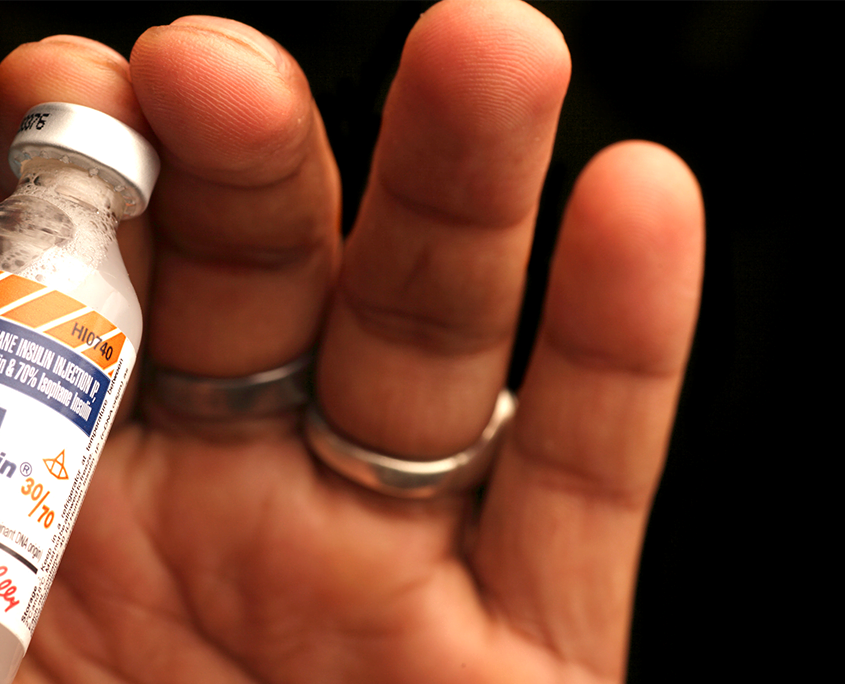A medic holds out a vial of prescribed Human Insulin injection for his diabetic patient.
Photo Credit: eROMAZe/iStock/Getty Images
World Diabetes Day
In middle and low-income countries, diabetes prevalence has risen faster compared to high-income ones. Going back to 2014, the estimated number of adults living with diabetes was 422 million, compared to 108 million in 1980. Presently, the percentage of the global prevalence of diabetes has nearly doubled from 4.7% to 8.5%, reflecting an increase in associated risk factors such as being overweight or obese.
Focusing on the urgent need to pursue multilateral efforts to promote and improve human health, and provide access to treatment and healthcare education. The General Assembly in 2007 adopted resolution 61/225 which designated November 14th as World Diabetes Day. The resolution also encouraged Member States to develop national policies for the prevention, treatment, and care of diabetes in line with the sustainable development of their healthcare systems.
The theme set aside for World Diabetes Day 2021-23 is access to diabetes care. Even though insulin was discovered 100 years ago, millions of people around the world are still not able to access the care that they need. People with diabetes require ongoing care and support to manage their condition and avoid complications.
While we mark World Diabetes Day, here are a few ways you can help someone who has diabetes:
Learn about the disease
There are lots of myths and wrong ideas about diabetes. For example, it’s not true that a major sweet tooth can lead to the condition, or that it’s unsafe for people who have it to exercise. Learn how diabetes works, how to prevent emergencies or complications, and other information so you can be useful. You’ll also want to learn the symptoms of low blood sugar (hypoglycemia) and high blood sugar (hyperglycemia), and what to do about them. Maybe ask your loved one if you can tag along to a doctor’s appointment.
Make it a team effort
A diabetes diagnosis is a chance for the whole household to start some healthy habits. Get everyone to get on board with nutritious meals, quitting smoking, and staying active.
Know when to step back
Remember that the person who has diabetes is responsible for managing it, not you. Don’t second-guess the care plan or try to police meals or snacks. Living with diabetes is hard work, and encouragement and support are better than unwanted advice or, worse, scolding.
Help ease stress
Too much stress can raise blood sugar levels and make it harder to control diabetes. But managing the condition can be stressful. Encourage your loved one to talk about feelings and frustrations. Try things together like meditating, walking, gardening, or watching a funny movie.
Expect mood swings
Swings in blood sugar can make someone jittery, confused, anxious, or irritable. Better blood sugar control can help avoid these ups and downs. Offer emotional support, and encourage your loved one to join a support group or talk about professional counseling if you think that might help.



